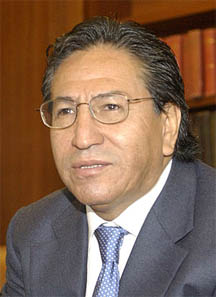While both the European Union and South America’s Mercosur bloc had condemned the latest round of violence in Gaza before Wednesday’s cease-fire, there was a big difference in their respective statements: One was reasonably balanced; the other was shamefully biased against Israel.
The 27-country European Union, one of the biggest donors to the Palestinian Authority, said in a statement Monday that it “deeply regrets the loss of civilian life on both sides” of the conflict between Hamas-ruled Gaza and Israel and that “all attacks must end immediately.”
It added that “the European Union strongly condemns the rocket attacks on Israel from the Gaza Strip,” and that “Israel has the right to protect its population from these kinds of attacks; in doing so it must act proportionately and ensure the protection of civilians at all times.”
In other words, the European foreign ministers explicitly recognized that Israel has a right to defend itself from the daily rocket attacks from Hamas, the militant Islamic group, while at the same time demanding that Israel not respond in a disproportionate manner. A Nov 14 Obama administration statement blamed “Hamas and other terrorist organizations” for starting the latest round of violence.
By comparison, the four-country Mercosur statement omitted any reference to Israel’s right to defend itself. The statement Saturday by the bloc made up of Brazil, Argentina, Uruguay and Venezuela (Paraguay is also a member, but is suspended) expressed “concern about the disproportionate use of force” — a clear reference to Israel — and called for an immediate end to the violence.
 The statement makes no mention of the previous rocket attacks by Hamas. Since 2005, Hamas militias have fired more than 8,000 rockets into Israel from the Gaza Strip, including 2,000 so far this year, disrupting the daily lives of more than 1 million people living in southern Israel, according to Israel Defence Forces’ figures.
The statement makes no mention of the previous rocket attacks by Hamas. Since 2005, Hamas militias have fired more than 8,000 rockets into Israel from the Gaza Strip, including 2,000 so far this year, disrupting the daily lives of more than 1 million people living in southern Israel, according to Israel Defence Forces’ figures.
This year, for the first time, Hamas rockets have reached Jerusalem and Tel Aviv. Israel says Hamas routinely fires rockets from densely populated areas near mosques, schools and hotels, using civilians as human shields.
The Mercosur statement also says that its member countries “express their support for the Palestinian state’s request” to obtain a United Nations seat as an observer nation. Separately, Argentina, which is scheduled to take up a rotating seat at the UN Security Council in January, sent a letter to the Security Council asking that it “urgently” meet to put an end to the violence and accept the Palestinian state as a non-member UN state.
The Palestinian authority has asked the UN General Assembly to vote for its enhanced UN status on November 29. Israel, the United States and several European countries say a formal recognition of Palestine, which would allow the Palestinians to launch diplomatic and legal actions against Israel, should only come after a peace agreement between Israelis and Palestinians.
Mercosur’s failure to recognize Israel’s right to defend itself reflects the South American bloc’s growing support for the Palestinian cause, and away from an even-handed approach to the Middle Eastern dispute, former Peruvian President Alejandro Toledo told me in an interview earlier this week.

“I’m concerned about Mercosur’s position. I find it somewhat unbalanced,” Toledo told me, adding that he finds the European Union position much more balanced. “The state of Israel has a right to defend itself, while at the same time it has the duty to protect the civilian population,” Toledo said.
My opinion: I agree with most cool-headed observers in that no side is entirely free of blame in the Israeli-Palestinian conflict. Israeli Prime Minister Benjamin Netanyahu’s hard-line policies have not made it easier to reach peace in the Middle East, and Egypt and Turkey’s new pro-Islamic fundamentalist governments have made things worse by stepping up their ties with Hamas terrorists.
And Hamas, in turn, is guilty of dramatically escalating its rocket attacks on Israeli civilians in recent months in hopes of provoking a bloody Israeli response that would put pressure on Egypt, Jordan and others to renounce their peace treaties with Israel.
But while all sides deserve criticism, Israel has a right to defend itself from daily rocket attacks, especially when its attackers — Hamas — don’t recognize its right to exist and publicly vow to wipe it off the map.
The European Union rightly recognized this and issued an even-handed statement. The Mercusur countries shamelessly didn’t, and moved farther away from a balanced stand.
© The Miami Herald, 2012. Distributed by Knight Ridder/Tribune Media Services.





